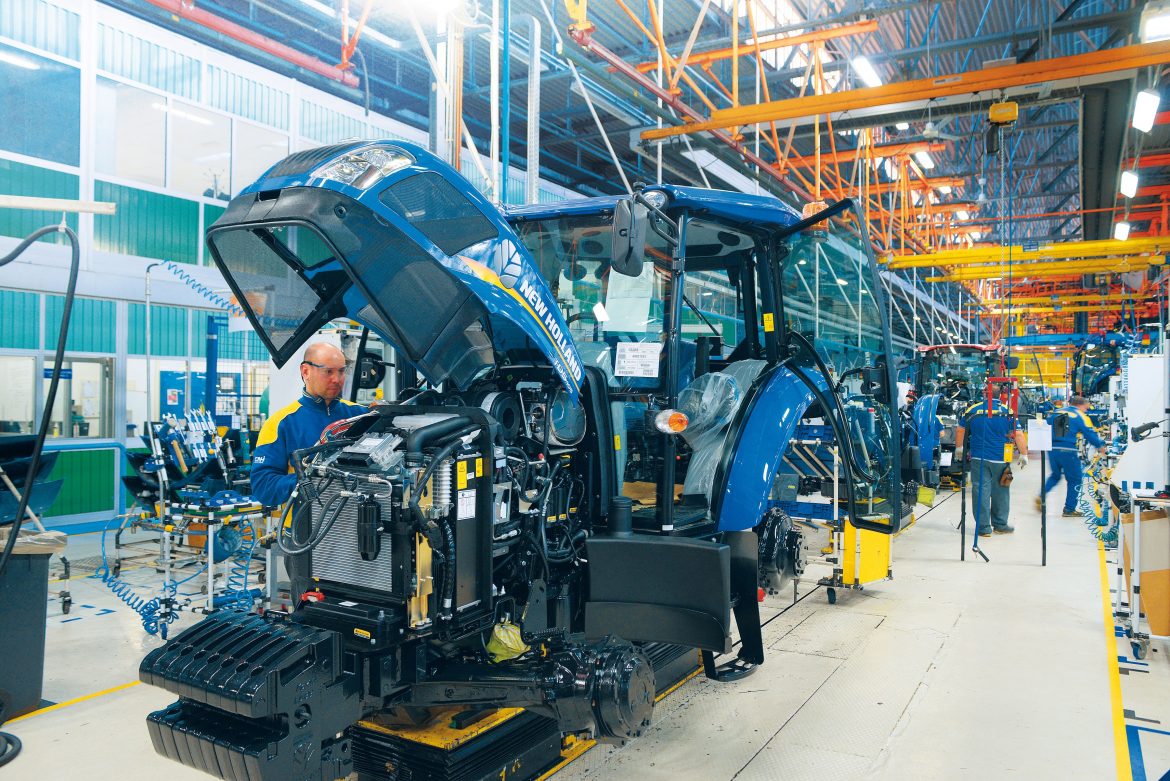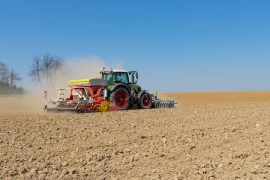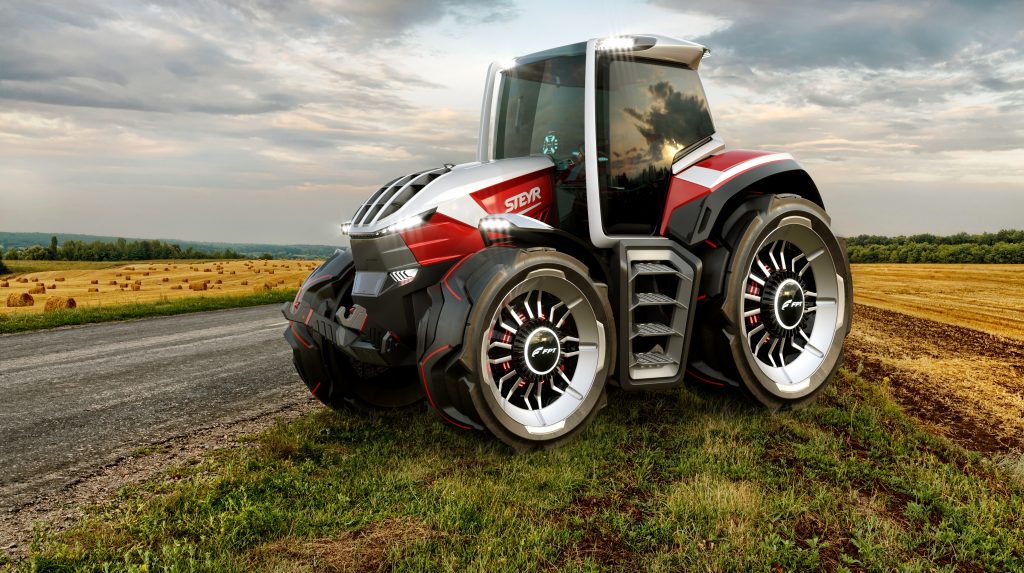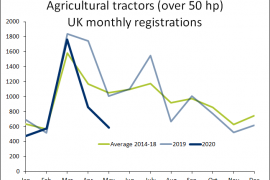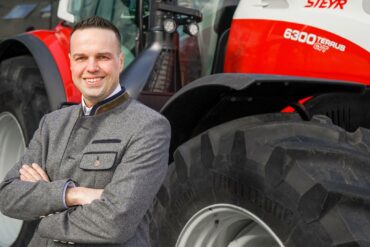The European Commission co-ordinates a common European response to the ongoing COVID-19 crisis, supporting the member states and industries in tackling the pandemic through extraordinary measures. When the crisis hit, the Non-Road Mobile Machinery (NRMM) industry – including agricultural machinery manufacturers – quickly identified that the existing provisions of Regulation (EU) 2016/1628 for machines using transition engines would create a major concern.
Manufacturers therefore called on the EU in March 2020 for an urgent moratorium on the application of 2020 and 2021 deadlines listed for the use of transition engines in Regulation 2016/1628/EU regarding exhaust emissions from NRMM and 2018/985/EU for agricultural vehicles. Transition engines in all power categories have been already built (respective deadlines have ended on 31.12.2018 and 31.12.2019) before anybody could foresee the pandemic and resulting major disruptions.
The COVID-19 pandemic is still causing major disruption which is impacting the agricultural machinery industry in the form of multiple shocks with on the one hand immediate and continuous disruption of production sites and of international value chains and on the other hand a sizeable drop in demand. This challenged an industry which is system relevant and critical to enable sustainable farming and Europe’s food security and affected manufacturers’ ability to meet some of the deadlines imposed by Regulation.
Regulation (EU) 2020/1040 only resolved the most urgent problem
European Institutions rightly amended the most urgent aspects of Stage V Regulation and extended by 12 months the 30th June and 31st December 2020 deadlines for the production and entry into service of NRMM and tractors fitted with transition engines <56kW and ≥130kW (Regulation (EU) 2020/1040 published on 15th July 2020). Although included in the initial request from industry, machinery fitted with transition engines between 56kW and 130kW (built up to 31/12/2019) retained the applicable deadlines and were not included in the extension granted through an urgent procedure. The European Commission and the Member States however agreed to closely monitor further developments and propose appropriate action if needed.
Unfortunately and despite all containment efforts, no one can still foresee how long the pandemic will last and if a second wave will further challenge our societies. Today’s uncertainty, be it from the control of the pandemic in the EU member states or from no clear view on a vaccine availability, will most probably continue for the majority of 2021. We cannot rule out that the market for agricultural machinery, which is already in difficulty, could suddenly drop if farmers cannot or fear to invest, leaving our industry plenty of transition engines in stock. However, we currently have better visibility on the impact of COVID-19 up to now.
Evidence now calls for legislative action covering machines to be fitted with 2019 built transition engines between 56kW and 130kW, granting a 12-month extension for production and entry into service.
Dramatic Covid-19 impact on vehicle registration and markets – 56kW to 129kW category hardest hit:
Agricultural machinery manufacturers have undertaken great efforts to implement all needed health and safety measures for their employees, distribution chains and customers while continuing to produce and service equipment for farmers in order to avoid a food crisis. Factories had to be stopped temporarily, supply chains were disrupted, critical components were missing, new work environments had to be designed, service had to be reinvented… But nature could not be postponed, and farmers never stopped their work.
Although our collective efforts significantly limited the immediate impact for our customers, agricultural tractor registrations for the first semester of 2020 still decreased by 12.08% in comparison with the first six months of 2019. The year had started on par with 2019 for January and February 2020, but registrations of agricultural tractors significantly dropped in March (-7.11% versus 2019), April (-25.81%), May (-22.72%) and June (-12.03%), reflecting the COVID-19 pandemic across Europe. The drop dramatically impacted the 2nd quarter of 2020 (-19.96% versus 2Q-2019), which is traditionally high season for registrations.
After this very significant COVID-19 immediate shock, the general Business Climate Index for the Agricultural Machinery Industry in Europe has now gradually improved back to pre-COVID-19 low levels, but it remains to be seen if tractor registrations will confirm this sentiment for the second semester of 2020 and if the lost business for the first semester will be even partly recovered, notably because of the seasonal characteristics of our businesses.
Machines with transition engines only represent a fraction of the agricultural tractors registered across Europe, while transition engines were built in 2018 and 2019 based on normal conditions. The extension by one year of the production and entry into service deadlines for machines fitted with transition engines below 56kW and above 130kW was desperately needed to avoid the scrapping of engines that could not be fitted in time because of multiple disruptions. However, based on numbers sourced from national authorities, the biggest drop in registrations is recorded for tractors from 56 to 129 kW, which fell by 16.03% in the first 6 months of 2020, with a record 23.55% drop in the second quarter. A comparable trend can be noticed for other types of agricultural machinery in the same power bands (such as combine harvesters or grape harvesters). These machines are currently not in scope of the COVID-19 crisis response. It is therefore highly predictable that more time needs also to be granted in this power band for the fraction of machines to be fitted with transition engines built in 2019.
Extension of 56 kW <= P < 130 kW deadline has no environmental negative impact, but engines still at risk of being scrapped if no action is taken
A potential extension of deadlines for transition engines 56 kW <= P < 130 kW cannot result in any environmental negative consequences for an absolute amount of polluting emissions. All the transition engines covered by the EU Regulation (EU 2016/1628) for entry into service have already been manufactured, so their number can no longer be influenced (i.e. increased) by manufacturers.
But if no action is taken, agricultural machinery manufacturers fear that transition engines in the 56 kW <= P <130 kW category may have to be scrapped in high five-digit numbers since the deadlines previously set for 2021 cannot be met because of the incapacity of a depleted market to absorb the number of pre-produced engines falling into this category and because of remaining supply chain issues. When planning for transition engines and under normal conditions, it is confirmed that many manufacturers retained a majority of pre-produced engines for this category compared to other power bands.
Any scrapping action should be considered extremely counterproductive in terms of climate protection, circular economy and sustainability. Scrapping of new engines just because the deadlines are too tight in light of a continuing pandemic would definitively hurt EU manufacturers by adding unnecessary ecologic and economic costs in a significant economic downturn phase.
The COVID-19 crisis has overturned a carefully crafted balance and planning
When designing the introduction of Stage V engine emissions for NRMM and agricultural tractors, the legislator carefully crafted a balanced introduction calendar, spreading the effort across a length of time established with the input of industry for a given environmental improvement and impact.
The environmental impact has not changed. But the much needed urgent extension granted for the 2020 deadlines now has the unfortunate consequence that multiple timelines are now competing at the same time for shrinking production capacities. While the efforts were previously spread across two years, manufacturers now have to plan simultaneously in 2021 for the rescheduled 2020 transition machines, for the 2021 transition machines as originally planned and for the ramping up of standard stage V machines. At the same time, machinery manufacturers and their component suppliers have seen their production capacity significantly reduced by shutdown periods, social distancing measures, teleworking and all the needed health and safety measures. Production lines have not returned to full capacity, engineers could not complete designs and release blueprints in time, planners have not recovered the time lost in preparing for the original deadlines, suppliers are not back to capacity with some dedicated critical components still under significant shortage, prototypes could not be tested and validated as planned and with sufficient hours during the appropriate season, and sales forces can still not engage with customers as they normally would have done…
In addition, the level playing field of our extended industry remains significantly challenged, as one’s ability to produce and service remains more impacted by geographical location and uneven containment measures rather than by common single market rules and comparable investment levels. The global supply chain (China, India, United States…) remains significantly disrupted. Closer to us, regions and major cities across Europe plan or start to re-confine their citizens to prevent and contain a second wave as much as possible.
Since the COVID-19 crisis is unfortunately setting a new normal and still has a negative impact on the supply chains in production as well as on the current and future market situation, the legislators must urgently re-establish the original carefully crafted timespan. The European Union needs to grant an additional 12 months for the 2021 production and entry into service of machines fitted with 2019 transition engines (56 kW <= P < 130 kW). The original transition period until 2021 needs to be extended for the 56 kW <= P <130 kW power range in the same way as it has been already done for the transition period until 2020 in other power categories. Such a measure would be adequate, proportionate and would establish similar market conditions for all power ranges avoiding market distortions between the various manufacturers. The postponement should also cover the deadlines applicable for dealerships doing the registration of the machines for the market.
Impacting the foreseeable machine mix and removing needed options for our customers
Transition engines were planned and produced based on normal market conditions. Since the beginning of the sanitary crisis, a much lower number of machines with transition engines in all power ranges (including 56 kW <= P <130 kW) have been manufactured and entered into service than it was originally foreseen.
This trend, also reflected in weaker sales figures of the manufacturers involved, implies significant risks for the employment situation (production and distribution) and for the successful entry into service of transition machines in the power range from 56 to 130 kW, under the existing 2021 deadline. Many agricultural machinery manufacturers may be forced to only produce machines with transition engines to meet the current planned deadlines, and to often grant considerable discounts to enable entry into service of those machines in given time. Especially for medium-sized and smaller manufacturers, this increases the risk of not being able to offer a more environmentally friendly portfolio mix of transition machines and many new Stage V models. Moreover, those mid-size and smaller companies might not be able to finalize development of new models, since their production and development capacities are often based on the same set of human and other resources. A subsequent disruption of production with further negative financial implications will be a logical result. Under such an unfavourable scenario, further negative consequences are also to be feared on a superior level: competitive disadvantages for European producers compared to rest of the world, global supply chain distortions affecting production and aftermarket sector, etc.
The trend unfortunately also indicates that farmers and contractors may have less options to choose from, as manufacturers may not be able to produce all the machines using transition engines as originally planned. Europe is the only region of the world with stage V engine emissions ambition levels. European farmers and contractors compete with other producers who face lower environmental requirements, and it remains to be seen if they can all afford the cost linked with the additional compliance. Removing machines with transition engines from the original mix of options – simply again because deadlines are too tight for reasons that could not be foreseen – may result in older machines being kept in service across Europe for the lack of affordable options.
In summary, an extension of the 2021 transition period by further 12 months for engines built in 2019 is absolutely necessary to enable environmentally friendly technology development and market support in times of the Coronavirus pandemic (i.e. installation by 30.06.2022 of transition engines in the power range 56 kW <= P < 130 kW produced till 31.12.2019, and entry into service by 31.12.2022).
Following the much welcomed urgent changes brought forward by Regulation (EU) 2020/1040 and based on the evidence currently available as the pandemic continues, we call on the European Commission, the Council of the European Union and the European Parliament to implement the requested amendment as soon as possible to minimize the impact of COVID-19 on our industry and our customers at no environmental or economical cost. Only an urgent decision will provide enough visibility for European agricultural machinery manufacturers to balance production schedules with reduced capacities, supply chain disruptions, and market uncertainties while avoiding difficult scrapping decisions.

